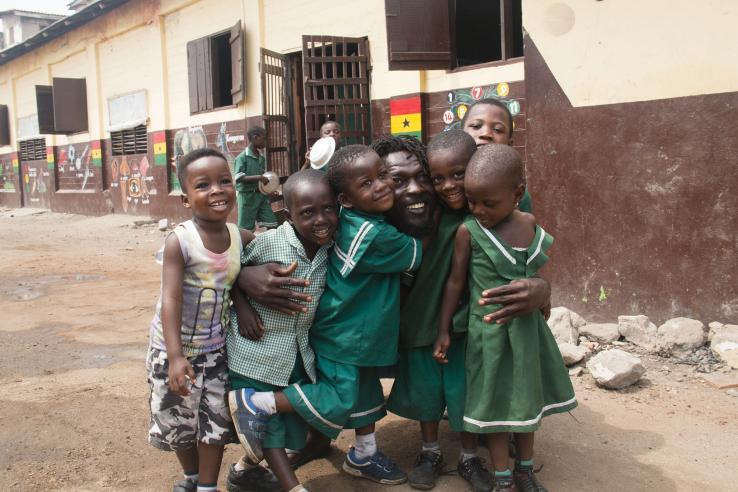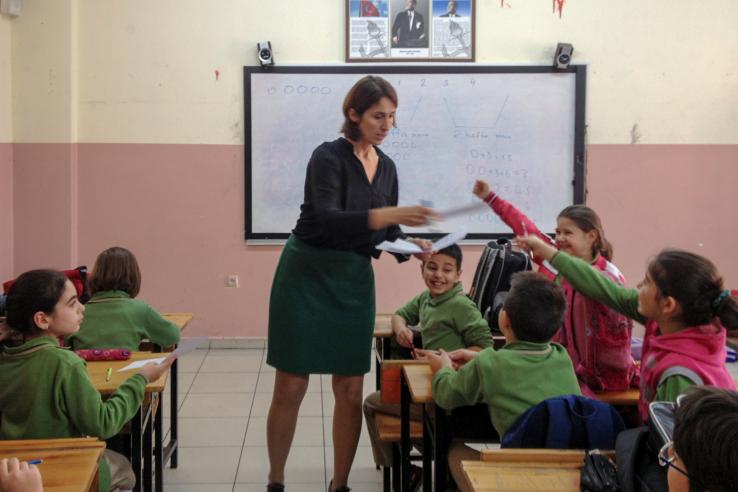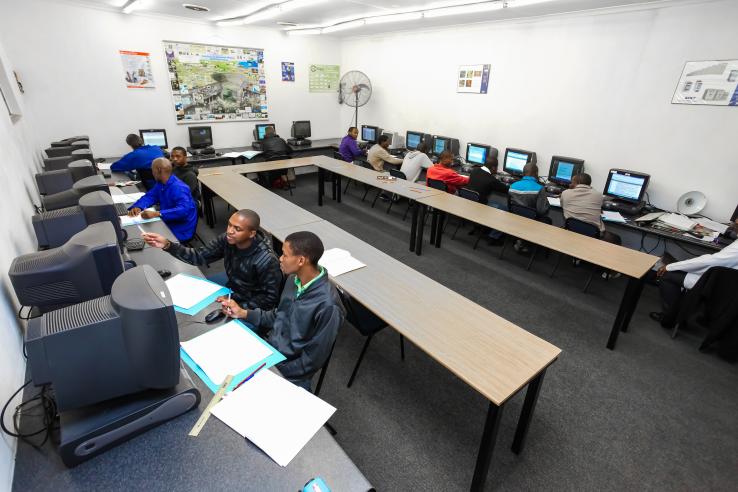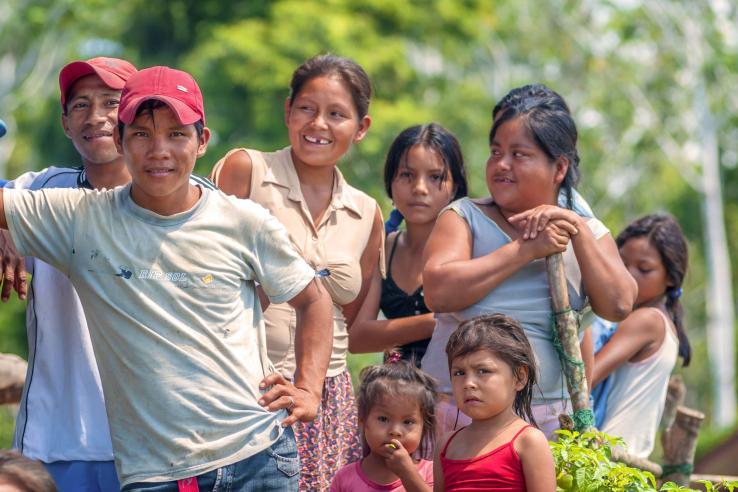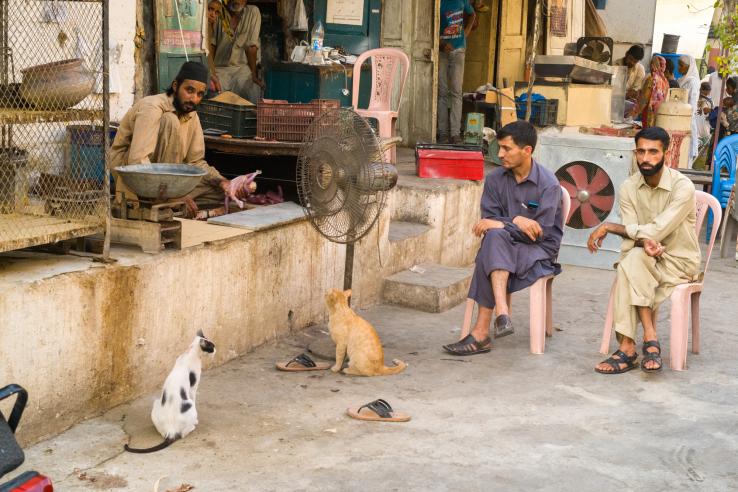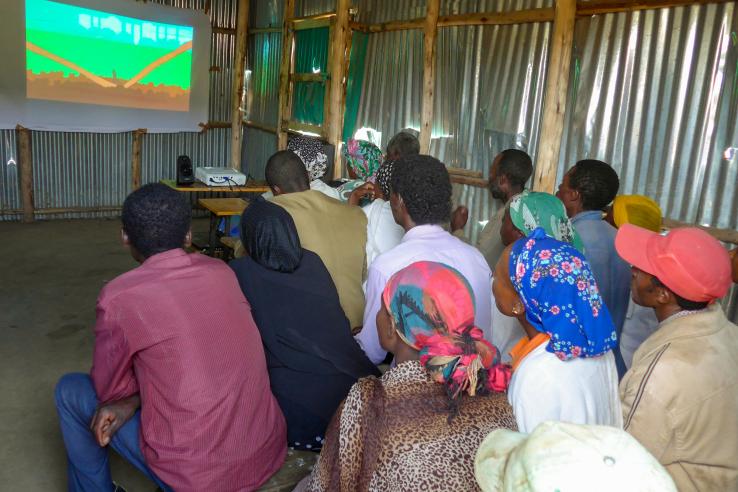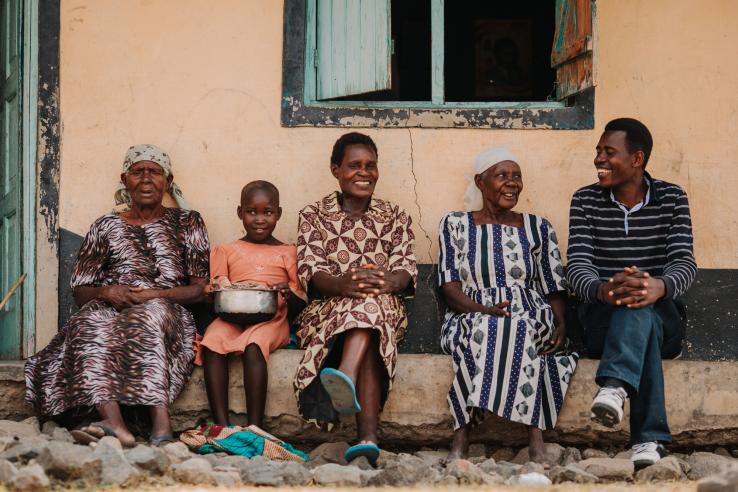Displaying 2431 - 2445 of 8326
Evaluation
As in many other developing countries, children under the age of five in rural Ghana often fail to reach their developmental potential. Researchers there are partnering with the organization Lively Minds to evaluate the impact of a low-cost, play-based learning program on early childhood cognitive development. Preliminary results suggest that the Lively Minds program is an effective and potentially scalable way to improve children’s cognitive and socio-emotional development, health, and school readiness.
Evaluation
Researchers evaluated the impact of a low-cost computer-based intervention providing information about the brain’s potential to change and grow on students’ beliefs in their abilities to learn and their subsequent effort in school. Results showed that providing this information improved students’ perseverance and academic performance, driven largely by impacts among the lowest achieving students.
Evaluation
Researchers introduced an educational program focused on teaching patience to evaluate the impact on students’ decision-making and willingness to wait for a future reward over the present. Students assigned to the program demonstrated more patient decision-making, which persisted almost three years after the program. Students were also less likely to receive low behavior grades.
Evaluation
Researchers studied the effects of a credit card interest rate increase among low-income subprime borrowers in the UK to assess its impact on credit card demand, overall indebtedness, and borrowers’ ability to pay. They found that following the rate hike, subprime borrowers who appeared to be more financially stable reduced their demand for new credit by 42 percent more than their counterparts who did not receive the rate increase. Overall, borrowers did not reduce their indebtedness and incurred higher interest charges, resulting in higher revenues for the lender and a larger debt burden for borrowers.
Evaluation
Researchers worked with public elementary schools in Istanbul to measure the effects of a “grit curriculum” on fourth-grade students’ perseverance, competitiveness, and test scores. Students who were exposed to the grit curriculum in 2013 earned higher scores on math exams, and the program also reduced the gender gap in competitiveness by encouraging girls who were likely to succeed to compete.
Evaluation
Access to quality jobs is a pressing concern in sub-Saharan Africa. In Kenya, researchers partnered with the technology company Sama and Innovations for Poverty Action to conduct a randomized evaluation of Sama’s training and job referral programs.
Evaluation
Researchers partnered with policymakers in New York City to evaluate the impacts of a redesigned court summons form and text message reminders on failure to appear (FTA) in court. A randomized evaluation found that text message reminders were able to reduce FTA by up to 26 percent, translating to 3,700 fewer arrest warrants per year.
Evaluation
Researchers are partnering with the government to provide training to local leaders geared towards shifting attitudes regarding gender and gender-based violence and increasing skills to detect and prevent its incidence. They will evaluate the impact of this training on the incidence of gender-based violence and on women’s physical and mental health.
Evaluation
Around the world, studies show that children’s health and cognitive development tend to be higher when parents have more education. However, it is unclear whether education itself causes improved child health, or if other factors account for this relationship. In Ghana, researchers are building on an ongoing study to evaluate the causal impact of parental education on child health and cognitive development, and to identify the specific channels through which increased parental education might improve child health.
Resource
Basic page
Evaluation
Researchers evaluated whether offering men in Saudi Arabia simple information on other men’s perceptions of female labor force participation impacts their willingness to let their wives join the labor force. Wives of men who received this information were significantly more likely to have applied and interviewed for a job outside of the home.
Evaluation
Mental health, well-being, and lasting economic outcomes are intimately connected, and in conflict-affected areas, entrepreneurs of small- and medium-sized enterprises (SME) experience chronic stress and poor mental health on a regular basis. Researchers evaluated the effects of supplementing a cash grants program with a five-week group cognitive behavioral training (CBT) program on depression, anxiety, and well-being among SME entrepreneurs in conflict-affected areas of Pakistan.
Evaluation
Researchers randomly evaluated the effects of a decentralized extension program and an additional video-based information campaign on farmers’ adoption of a package of integrated soil fertility management (ISFM) technologies as well as individual practices in Ethiopia. They found that both in-person extension services and extension services combined with a video campaign increased the adoption of the package and some practices of ISFM. This increase was driven by improvements in awareness and knowledge of practices.
Evaluation
Citizen participation in local civic affairs and in decision-making processes around village resources can be a way to align policies with local preferences, hold politicians accountable, and improve public service delivery. In rural Western Kenya, researchers are partnering with GiveDirectly to evaluate the impact of unconditional cash transfers on civic engagement and community participation.
